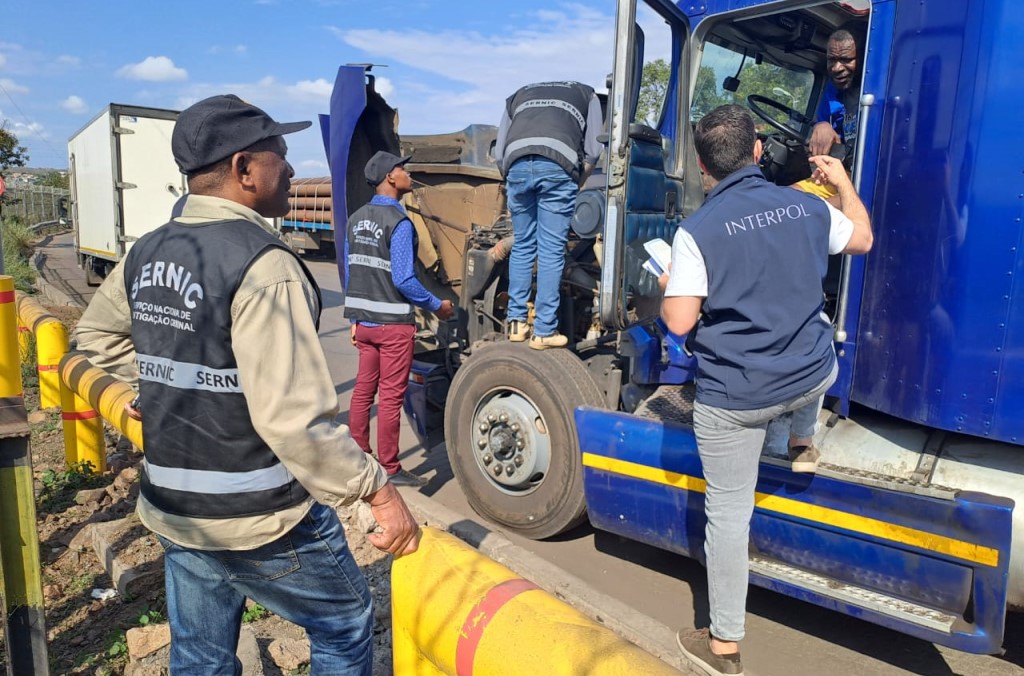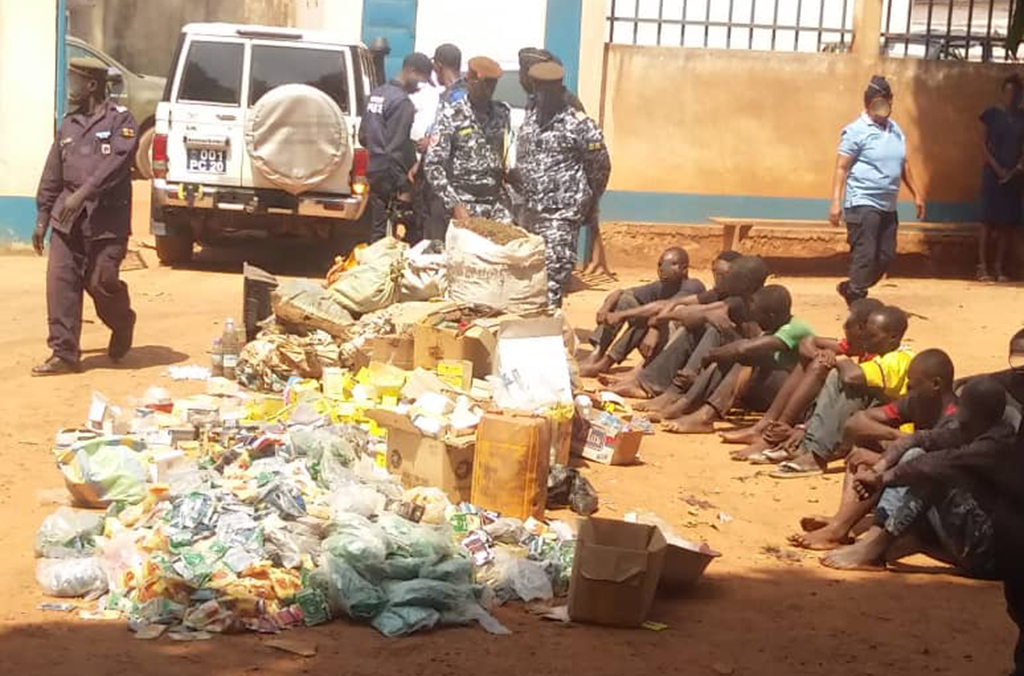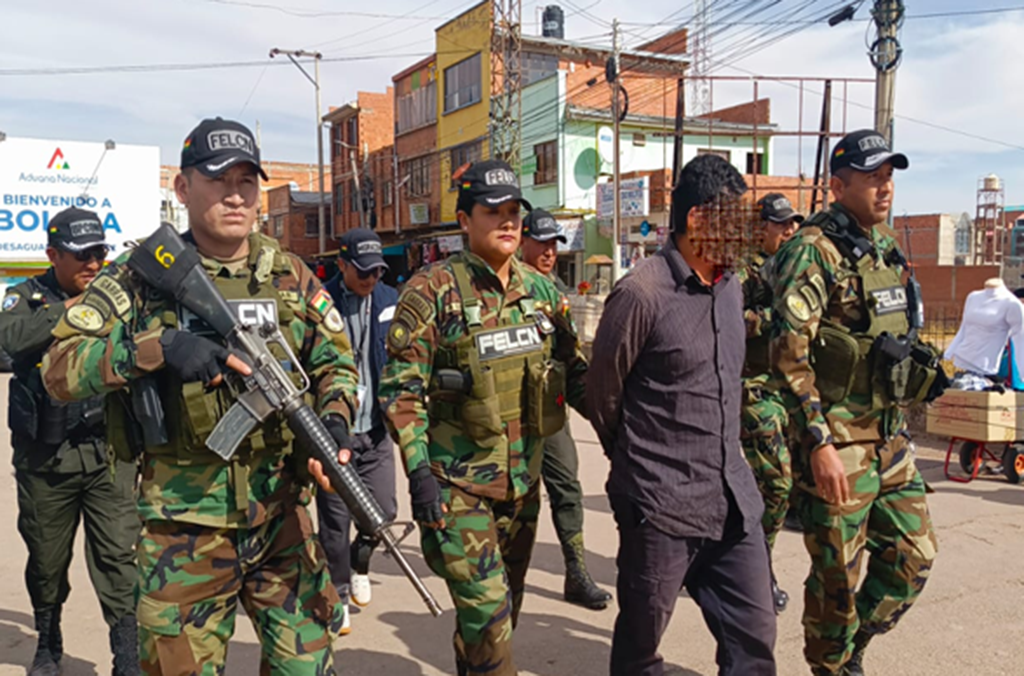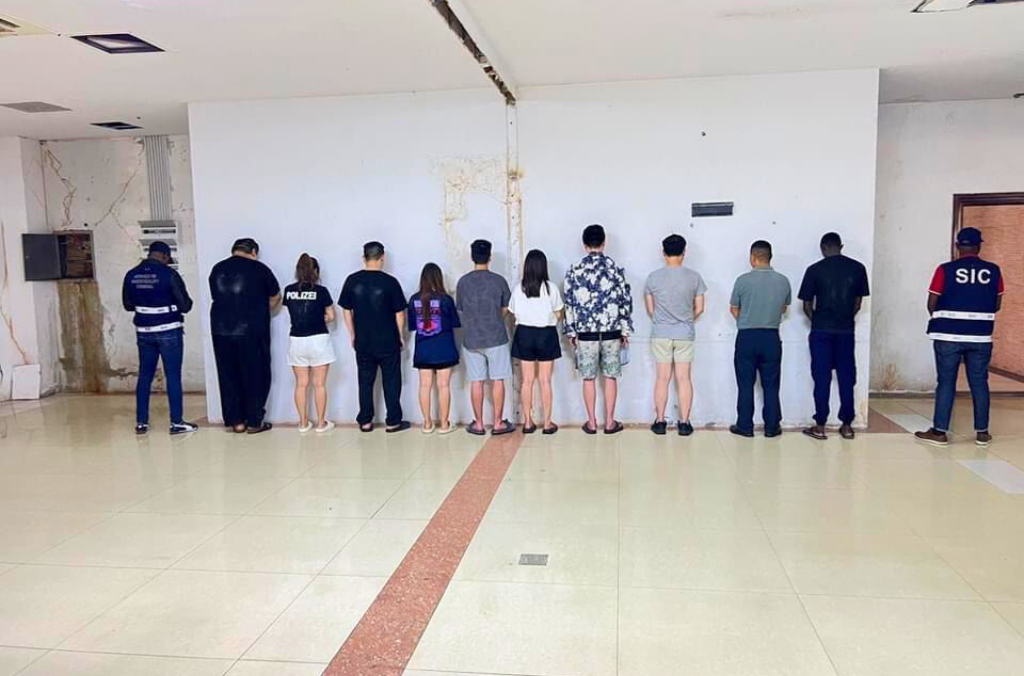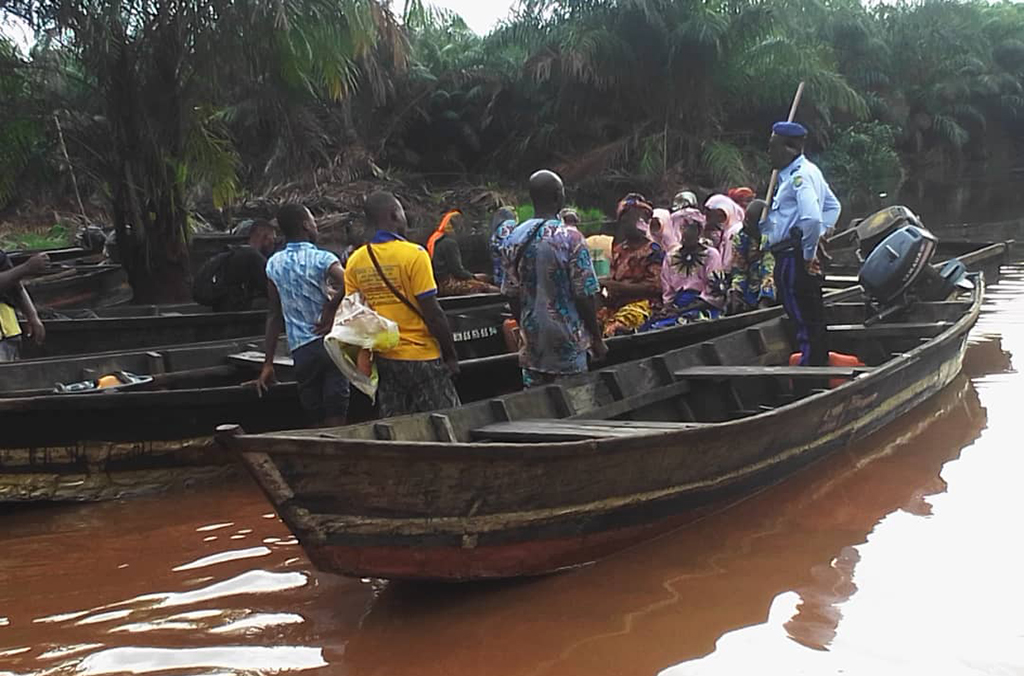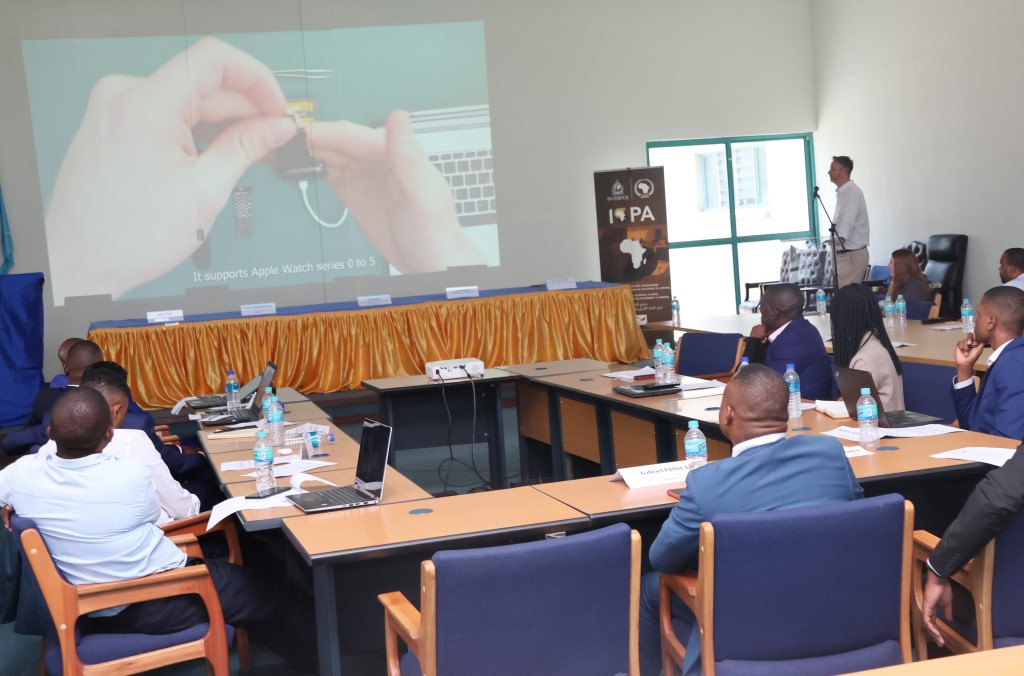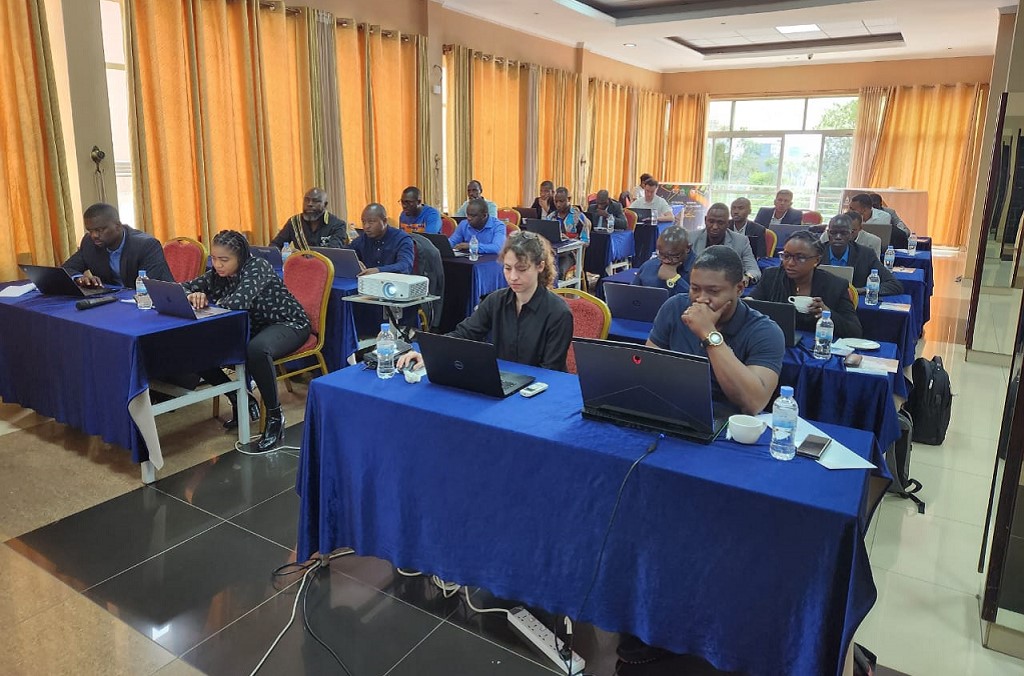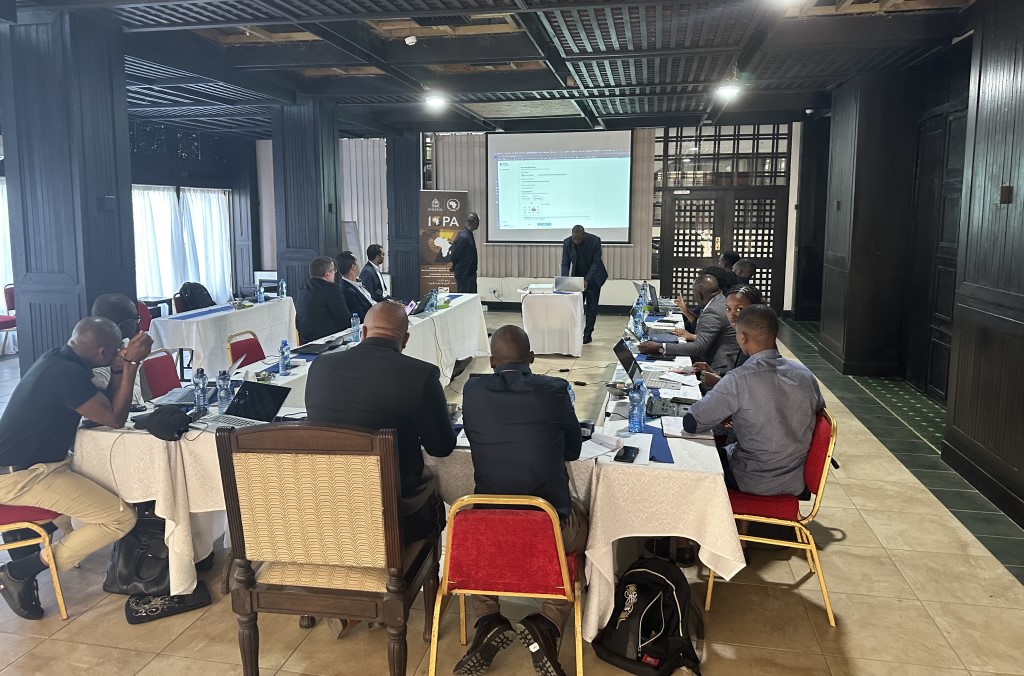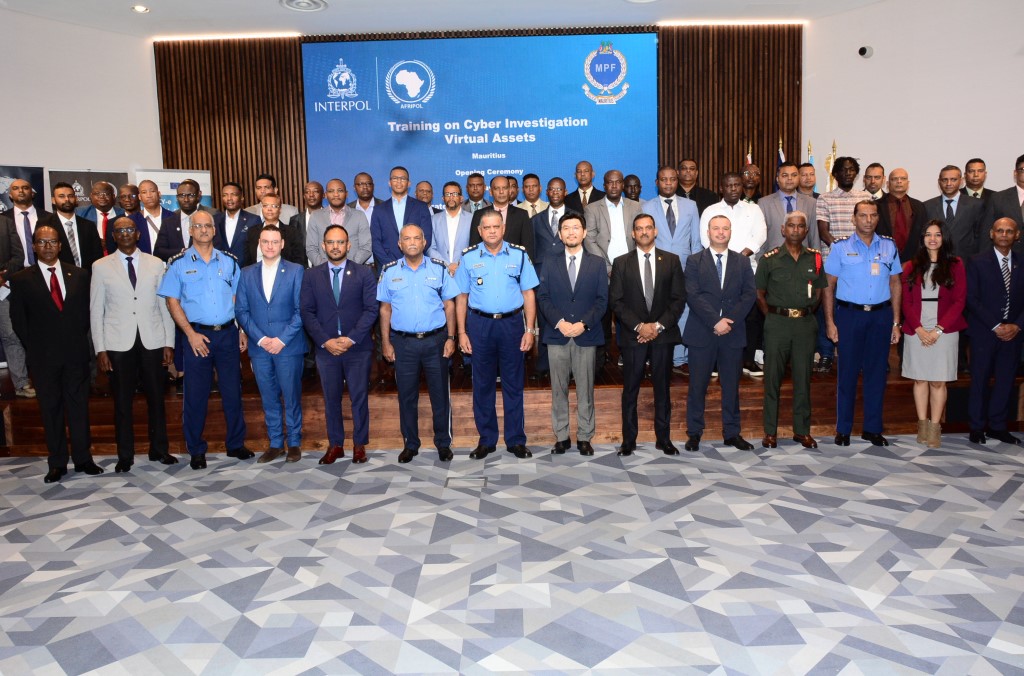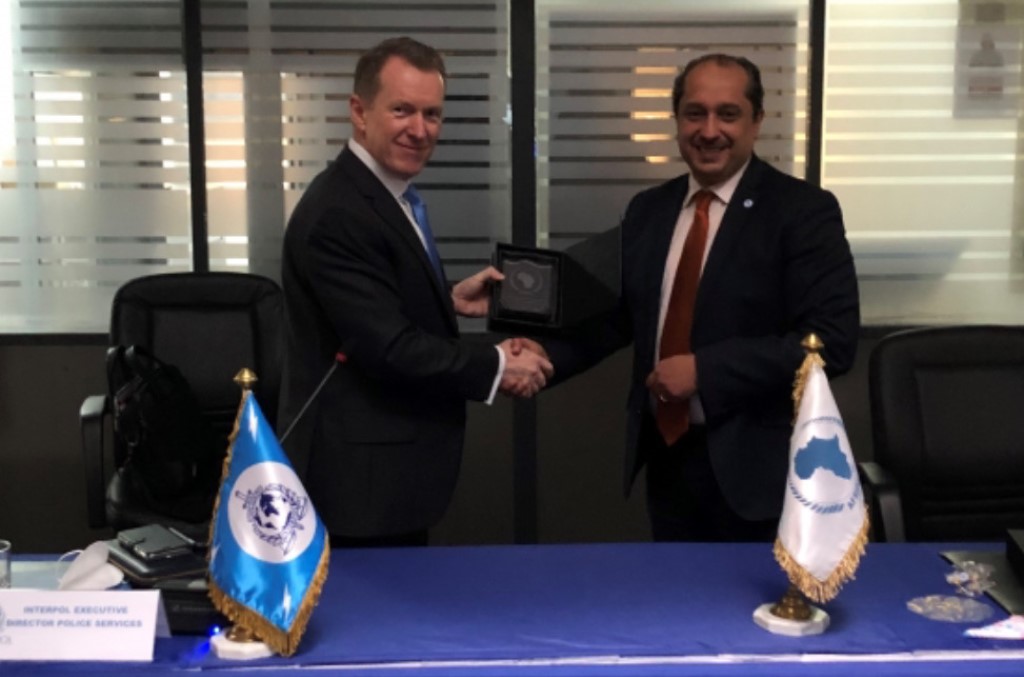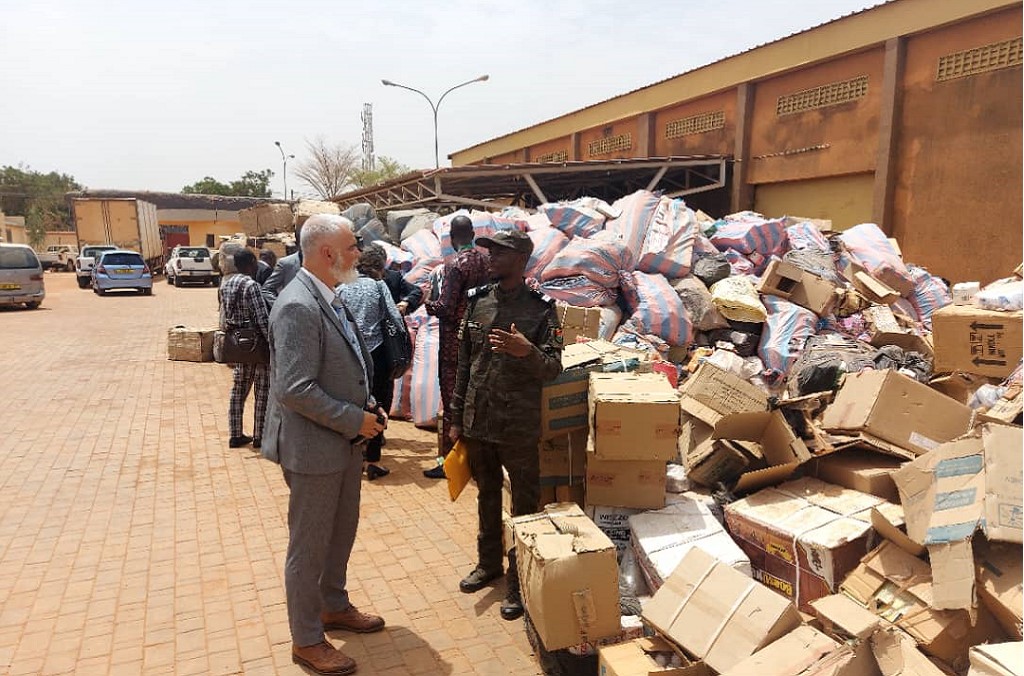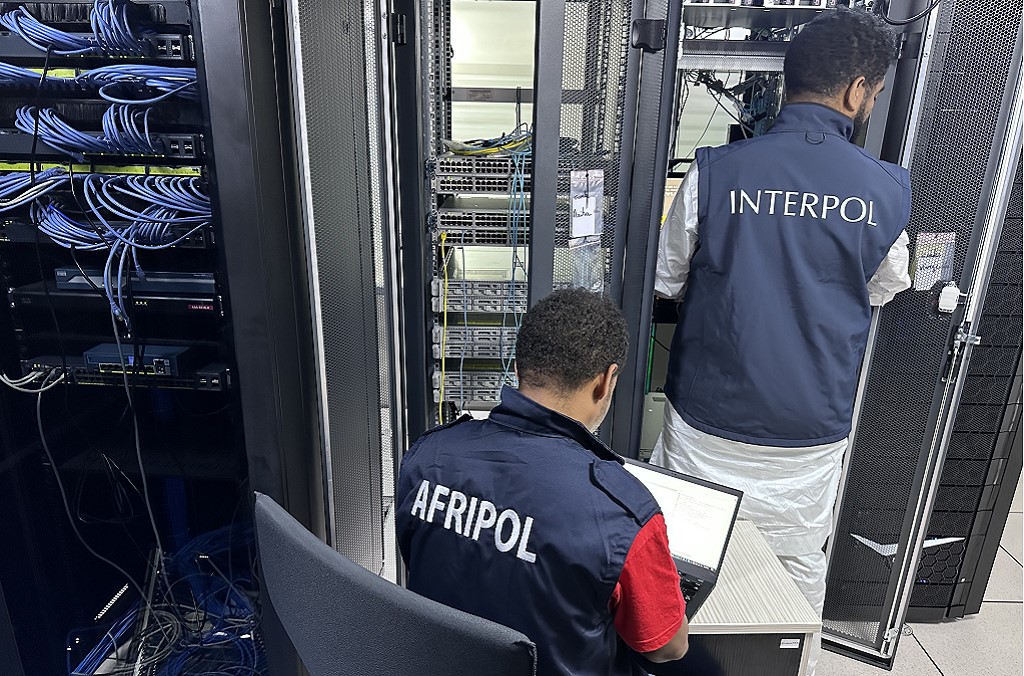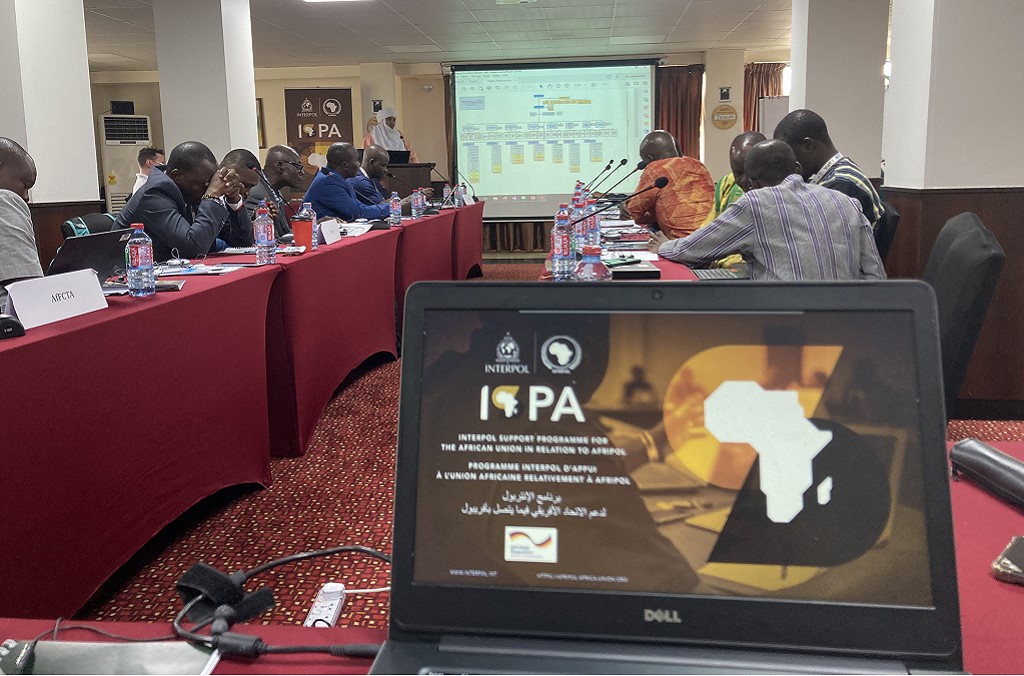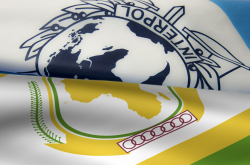Timeframe: 2020 - 2026
Donor: German Federal Foreign Office
Stronger law enforcement cooperation for a safer Africa
AFRIPOL is an independent mechanism of the African Union (AU) and a key stakeholder in the area of international police cooperation and in the fight against transnational crime.
As a regional police organization, AFRIPOL provides a framework for police cooperation at the strategic, tactical, and operational levels in all African states. The INTERPOL Support Programme for the African Union in relation to AFRIPOL (ISPA) assists AFRIPOL in developing its functions across the continent.
The programme started in 2020 for an initial period of three years until March 2023 (Phase 1) and was extended until December 2026 (Phase 2).
Longstanding cooperation between INTERPOL and the African Union
INTERPOL and the African Union work side by side on matters of joint interest, sharing resources and expertise, and developing combined responses to Africa’s policing needs. This ongoing cooperation was formalized with the signing of a Memorandum of Understanding between the AU and INTERPOL in 2011.
A further cooperation agreement signed with the AU in 2019 identifies complementarity between INTERPOL and AFRIPOL, avoiding duplication of efforts amongst common member countries and promoting synergies.
Programme aims
The ISPA Programme supports AFRIPOL to strengthen its position as the lead institution in Africa for preventing and combating transnational organized crime, terrorism, cybercrime and financial crime.
Specifically, the programme promotes the development of AFRIPOL’s capabilities through operations and investigations, criminal analysis and the exchange of information, knowledge, and best practices.
These activities help AFRIPOL to improve the efficiency and effectiveness of police across Africa by assessing crime threats, harmonizing police methods, and fostering good governance, in line with national policies.
Programme activities

The ISPA Programme provides support to AFRIPOL under five outcomes:
- Strengthening AFRIPOL’s governance framework by providing strategic, operational and legal advice, as well as support on data protection;
- Improving AFRIPOLs’ capabilities to disrupt criminal networks engaged in terrorism, organized and emerging crime, cybercrime and financial crimes;
- Establishing AFRIPOL’s information systems and enhancing communication by providing technical support and extending access to INTERPOL’s I-24/7 secure global police communications system;
- Supporting AFRIPOL’s Criminal Intelligence Analytical Unit (CIAU) by providing technical equipment as well as tailored training and mentoring programmes;
- Building AFRIPOL and INTERPOL common member countries’ capacity by assessing needs and priorities and organizing workshops.
Project updates
OPERATIONS: DISRUPTING CRIMINAL NETWORKS ACROSS AFRICA
Through the ISPA Programme, AFRIPOL and INTERPOL launched a series of high-impact joint operations, delivering decisive blows to terrorism, transnational organized crime, and cybercrime. By fostering collaboration among law enforcement agencies and partners, both at a regional and international level, these operations have enabled a unified response to emerging threats and maximized the impact of resources.
Notable operations include:
- Operation Catalyst (2025) was a first-of-its-kind operation targeting terrorism financing and the illegal activity supporting it. It led to 83 arrests across six African countries and the identification of 160 persons of interest.
- Operation Djembe (2025) - A joint operation involving Côte d'Ivoire, Ghana and Nigeria to disrupt transnational criminal organizations in the region, led to the arrest of 204 suspects and the seizure of 58kg of illicit drugs. The operation also enabled the rescue of 202 victims of human trafficking who originated from eight African countries. The initiative brought together 27 national agencies from the three countries, whose close coordination and real-time intelligence sharing led to the operation’s success. Notably, Nigeria arrested 71 suspected members of West African organized crime groups, the majority facing cyber-related charges.
- The Nigerian inter-agency operation (2024) united 12 Nigerian law enforcement agencies for a first-of-its-kind initiative. The innovative approach resulted in 36 arrests and seizures worth USD 3 million and underscored a trend of youth involvement in organized crime, with most arrested suspects under 35 years old.
- Operation Liberterra II (2024), marked the largest international operation to date against human trafficking and migrant smuggling, spanning 116 countries and territories. The operation resulted in the rescue of 3,200 potential victims and revealed a disturbing trend of trafficking victims being forced to commit online scams.
- Operation First Light (2024), a 61-country operation that froze 6,745 bank accounts, made 3,950 arrests and seized assets totaling USD 257 million. For this operations the ISPA programme supported AFRIPOL’s global reach by joining forces with ASEANAPOL, GCCPOL and Europol.
- Operation Serengeti (2024) arrested 1,006 suspects across 19 countries and dismantled 134,089 malicious infrastructures and networks. With more than 35,000 victims identified, and cases linked to nearly USD 193 million in financial losses worldwide, Operation Serengeti demonstrated the vast scale and sophistication of cybercrime affecting the continent.
- Operation Flash-ARISE (2024), resulted in 37 arrests across eight East African countries, including suspected members of ISIS, Al Shabaab, and foreign terrorist fighters. The operation also strengthened border controls, with frontline officers conducting over 88,000 database checks that led to 32 additional arrests for various crimes.
- Africa Cyber Surge Operation II (2023) expanded its cyber-security footprint across 25 African countries, identifying 14 suspected cybercriminals and disrupting 20,674 suspicious cyber networks.
- Operation TRIPARTITE Spider (2023) saw the arrest of 14 terror suspects and the seizure of explosives, thanks to a coordinated effort from police, customs, border forces, and counter-terrorism experts.
- Operation Nervone (2023) resulted in the arrest of a key figure from the notorious OPERA1ER cybercrime group that had been targeting African financial institutions. The operation, supported by AFRIPOL and ISPA representatives, demonstrated the effectiveness of a coordinated approach to high-value threats.
- Operation Flash-WEKA (2023) led to 1,062 arrests and the rescue of 823 human trafficking victims, demonstrating how improved coordination between INTERPOL and AFRIPOL can enhance the effectiveness of joint operations.
- Operation WEKA II (2022) rescued nearly 700 victims of human trafficking and resulted in 300 arrests, highlighting the interconnected nature of organized crime and the need for coordinated action.
- Africa Cyber Surge Operation (2022), the first transnational African cybercrime operation, identified thousands of at-risk online infrastructures and fostered crucial partnerships with technology stakeholders.
- Operation Flash-IPPA (2021), the first pan-African police operation jointly coordinated by INTERPOL and AFRIPOL, targeting counterfeit pharmaceutical products. The operation, which led to significant arrests and seizures, revealed an alarming trade in fake vaccination certificates and the illegal distribution of genuine vaccines.
Following the operation, missions in 2022–2023 addressed container smuggling at West African seaports. Visits to Benin, Ghana, Niger, Nigeria, Togo, and Burkina Faso enhanced cooperation between INTERPOL National Central Bureaus and AFRIPOL National Liaison Offices, and port authorities, leading to shared intelligence and a joint response at an expert meeting in Accra.
TRAINING AND TOOLS: ENHANCING SUSTAINABLE LAW ENFORCEMENT IN AFRICA
Lasting security needs both effective law enforcement operations and systematic capacity building. The ISPA Programme equips African law enforcement with the tools, skills and equipment to benefit communities long after operations conclude. This includes the distribution of cutting-edge cybercrime investigation equipment and comprehensive training to AFRIPOL and 36 African member countries, including cybercrime investigation tools, blockchain analysis software and digital forensic capabilities.
Notable achievements include:
- The establishment of AFRIPOL's Central Criminal Intelligence Analysis Unit (2024), which involved recruiting analysts and delivering an intensive 16-module training curriculum. Experts from multiple INTERPOL directorates shared their expertise, covering a range of topics from counter-terrorism to financial crime analysis.
- Regional training initiatives, such as the 2024 Dakar training on stolen motor vehicles, brought together 21 officers from 14 West African countries to combat stolen vehicle trafficking to the region. The training had a measurable impact, with participants demonstrating significant improvement in vehicle identification techniques and understanding of sophisticated theft methods.
- The Counter-Terrorism Investigative Cycle training in Abidjan (2024), conducted jointly with Project CT-Shield, represented a 10-day deep dive into all aspects of CT investigations. With instructors from INTERPOL, AFRIPOL, Germany's BKA, and the Timbuktu Institute, officers from 10 countries gained expertise in surveillance, evidence collection, interrogation, and crime scene investigation. ISPA's funding supported the participation of 14 officers from eight francophone Central African countries, promoting linguistic and regional diversity.
COOPERATION AND MEETINGS: BUILDING AFRICA'S SECURITY NETWORK
A cornerstone of the ISPA Programme is its strategic approach to fostering long-term cooperation between international and African law enforcement agencies. Through high-level meetings, joint initiatives, and the establishment of shared infrastructure, ISPA has laid the groundwork for a resilient security network across the continent.
Notable moments include:
- Joint meetings between INTERPOL National Central Bureaus and AFRIPOL National Liaison Offices held across Africa’s five sub-regions (2021–2022), strengthening regional coordination while ensuring interoperability and avoiding duplication of channels.
- High-level strategic engagement, including the 2022 and 2024 meetings of Chairpersons of African Regional Police Chiefs Cooperation Organizations (2024), which resulted in declarations to further digitalize criminal data in Africa, build synergies between INTERPOL and AFRIPOL, and enhance cooperation through joint operations and reciprocal meeting participation.
- AFRIPOL’s active participation in INTERPOL events and initiatives, including regional African conferences and, as an observer, in INTERPOL General Assemblies. AFRIPOL has also been engaged in the Dialogue process, participating in both the Working Group on Strategic Aspects and the Working Group on Operational Aspects.
- A consultation in Addis Ababa (2023) on AFRIPOL’s Counter-Terrorism and Transnational Organized Crime strategies, gathered 20 countries, CISSA, and African Union representatives to shape strategic objectives that reflect operational needs, while strengthening AFRIPOL’s profile and network.
- The installation of AFRIPOL's data centre (2023) provided the technological backbone for enhanced cooperation. This critical infrastructure strengthens the African Police Communication System (AFSECOM), paving the way for secure, rapid information exchange that will support all future operational cooperation between AFRIPOL and INTERPOL, and African member countries.
- INTERPOL engaging in AFRIPOL-led events, such as the 5th National Liaison Offices meeting in Algiers (2024).
- The Joint INTERPOL-AFRIPOL Working Group on Counter-Terrorism (2021, 2025) aimed to evaluate the impact of recent joint operations and discuss emerging threats and innovative approaches. The second edition brought together participants from 18 member countries.
The ISPA Programme’s legacy extends far beyond statistics, in its creation of durable partnerships, enhanced capabilities and a united framework for African security cooperation.




